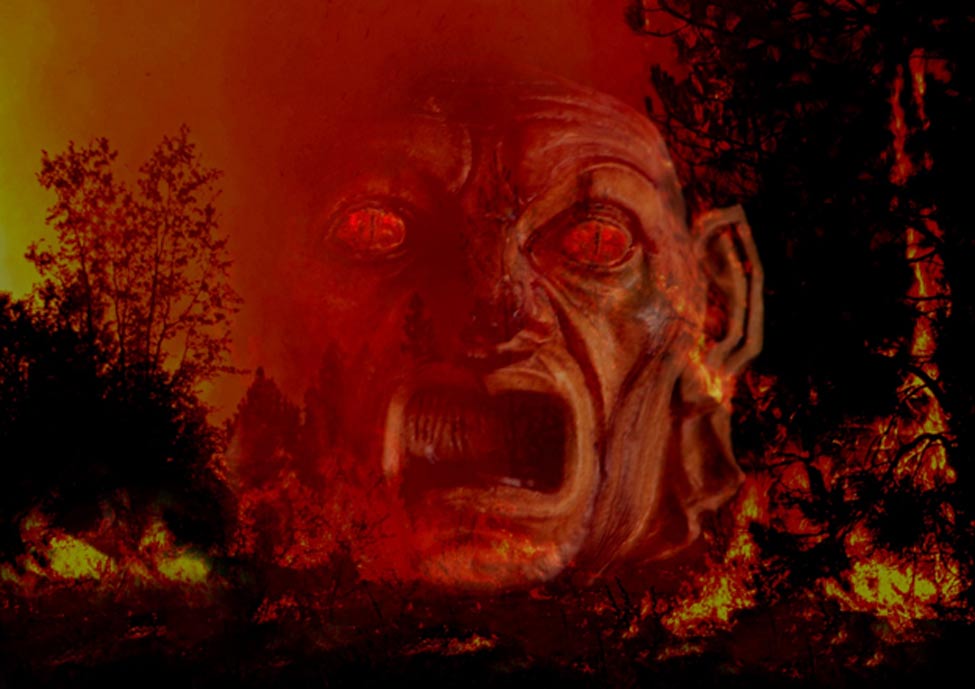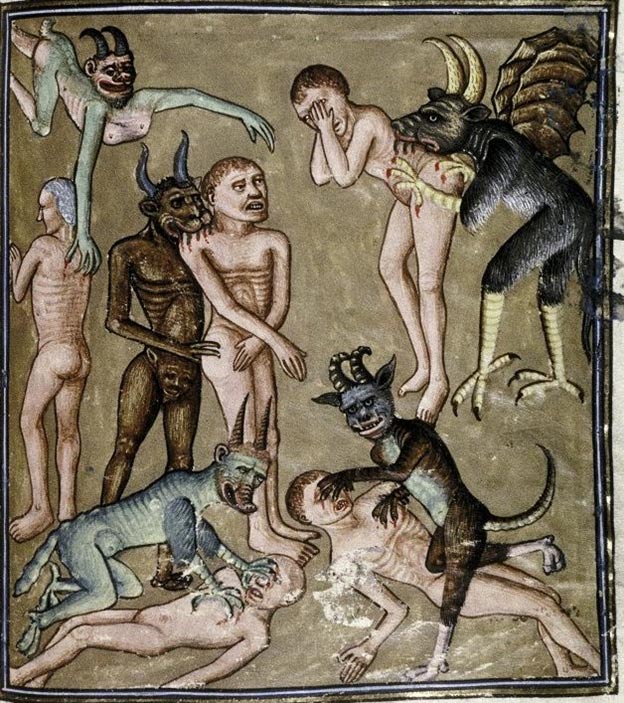
The Origins of Evil: The Story of Human Spirituality and Belief Systems
Evil is as old as humanity. We live in a world of duality. Darkness and light. Good and evil. Up and down. In and out. Heaven and Hell. But which came first—or did these dual concepts evolve side by side as our primitive understanding of the world around us became more sophisticated over time?
The concept of evil has changed over time to mirror our own evolving behavior as human beings.
The History of the Word
Looking first at the etymology of the word “evil,” we find that it has its roots in the English (Middle English evel, evil; Old English yfel), German (Old High German ubil, ubel) and Dutch (evel) languages. The first known use of the word “evil” dates back to the 12th century, and is used as an adjective (evil life), adverb (gone evil), noun (evilness) and idiom (thy evil one, Satan).
In Old English and older Germanic languages other than Scandinavian, the word is an adjective expressing disapproval, dislike or disparagement. Evil was the word the Anglo-Saxons used for bad, cruel, unskillful, defective (adj.), or harm (n.), crime, misfortune, disease (n.). In Middle English, evil was focused more on moral badness, with goodness and purity as its opposite.
- A Pilgrimage of Thought: The Divine Comedy by Dante Alighieri
- Weird Witch Bottles, Historic Efforts to Ward Off Evil Spells and Witchcraft
- Revealing the True Nature of Elves: Dangerous Beauties and Diabolical Fiends
The general meaning of the word is harmful, morally wrong, immoral, wicked, bad, sinful, mischievous, and even misfortune (evil has befallen the poor soul!). Whether being used as a noun, adjective or adverb, the word implies something to be feared, something awful, disastrous, nasty, primal and even murderous. It’s just not a good word with any connotations of the positive.

Evil demons attacking and feasting on humans, circa 1450-1470. (Public Domain)
Most people use the term evil to describe another person’s behaviors or actions, but the word has also become a symbol of a dark power that is the antithesis to goodness and light. If angels are holy, demons are evil. It is this association that most gives rise to the evolution of the devil itself, and the minions of death, hell and the underworld; all of which represent the dual nature of humans themselves, as well as the possibility of negative forces, energies and entities. Where evil might have once simply described a terrible person, it soon became personified with supernatural entities that represented every opposite of good possible.
Interestingly, “evil” backwards is “live,” implying perhaps that true evil is the opposite not of goodness, but of life itself. Death is not necessarily evil, but our obsession with the darkness of the unknown may have morphed its way into our psyche as the “anti-live,” or evil. Switch the letters around, and you have “vile.” Add a “D” and you have “devil.”
Words have incredible power to convey not just simple explanations or descriptions, but deeper meanings that often are symbolic in nature and appeal to our subconscious as archetypal.





